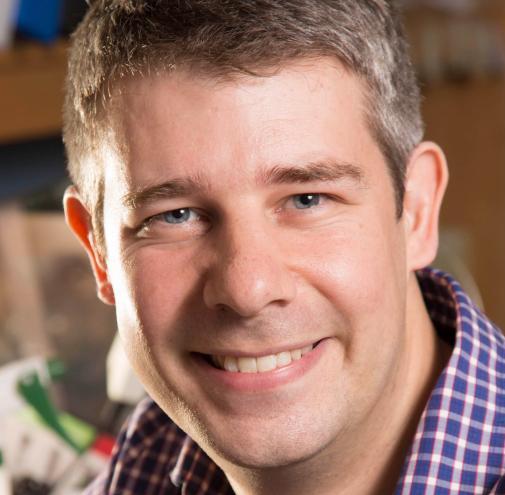
Overview
Dr. Sanders trained as a pediatric physician in the UK before undertaking a PhD and postdoctoral research position at Yale. He is now an Associate Professor at UCSF in the Department of Psychiatry. His research focuses on using genomics and bioinformatics to understand the etiology of developmental disorders, such as Autism Spectrum Disorder (ASD).
As a member of Dr. Matthew State’s lab, he worked with the Simons Simplex Collection Genomic Consortium (SSCGC) to quantify the role of de novo copy number variants (CNVs) in ASD, including discovering that de novo duplications at 7q11.23 are an ASD risk factor (Sanders et al. Neuron 2011). He also used exome sequencing to show that de novo protein-truncating variants PTVs (also called loss-of-function (LoF) mutations) are associated with ASD. This analysis established a statistical framework for identifying the specific genes involved in ASD pathology, based on these de novo events, discovering that the voltage-gated sodium channel SCN2A is an ASD risk gene (Sanders et al. Nature 2012).
Working with collaborators, he helped develop this approach to gene discovery further (He et al. PLoS Genetics 2013; Samocha et al. Nature Genetics 2014) and apply it to larger ASD cohorts (De Rubeis et al. Nature 2014, Iossifov et al. Nature 2014, Dong et al. 2014). Combining data from the Simons Simplex Collection (SSC), Autism Sequencing Consortium (ASC), and the Autism Genome Project (AGP), Dr. Sanders’ work identified 65 ASD-associated genes and 6 ASD-associated CNV loci (Sanders et al. Neuron 2015). In addition, by comparing the CNV and exome data, this analysis showed that a single critical gene is often present in small de novo deletions (e.g. ≤7 genes), whereas large de novo CNVs tend to contain multiple risk genes of lower effect.
As a PI, Dr. Sanders co-leads the whole-genome sequencing (WGS) working group of the ASC with Michael Talkowski. This group developed the Category-Wide Association Study (CWAS) approach to WGS analysis, which provides a framework to define and account for the multiple comparisons inherent to these analyses (Werling et al. Nature Genetics 2018). He is also a member of the Whole-Genome Sequencing in Psychiatric Disorders (WGSPD) steering group, which seeks to integrate WGS data across multiple disorders to maximize power (Sanders et al. Nature Neuroscience 2018).
His lab has helped understand the role of SCN2A mutations in human disorders. In collaboration with Dr. Kevin Bender, he showed that loss-of-function variants that reduce neuronal excitability lead to ASD and developmental delay, while gain-of-function variants that increase neuronal excitability lead to infantile seizures (Ben-Shalom et al. Biological Psychiatry 2017). The loss-of-function mutations also impact back-propagation of the action potential and synaptic plasticity (Spratt et al. BioRxiv 2018), potentially opening an avenue to future therapeutics, as discussed in the review written in collaboration with the SCN2A family group and numerous researchers (Sanders et al. Trends in Neuroscience 2018).
Dr. Sanders is the Director of the Psychiatry Department Bioinformatics Core (PsychCore) at UCSF, a member of the SPARK medical genetics committee, the Autism Science Foundation Scientific Advisory Board, and an Assistant Editor for the Journal of Neurodevelopmental Disorders.
Education
- PhD, with distinction; Genetics, Yale University (2011-2014)
- Postdoctoral Research Associate, State Lab, Yale University (2007-2011)
- Membership of the Royal College of Paediatrics and Child Health, UK - equivalent to board exams in USA (2007)
- Bachelor of Medicine; Bachelor of Surgery (equivalent to MD in USA), with distinction; Nottingham University Medical School, UK (2003)
- Bachelor of Medical Science, first class honors; Nottingham University, UK (2001)